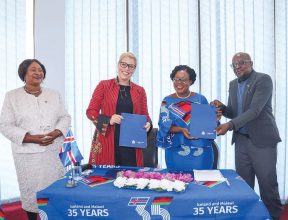MLS, political parties welcome polls’ legal reforms
The Malawi Law Society and political parties have welcomed proposals by the Malawi Electoral Commission and the Judiciary to establish rules aimed at expediting resolution of polls’ disputes.
The legal reforms will regulate the management and resolution of disputes arising from Presidential, Parliamentary and Local Government elections to ensure they are resolved with speed and competence.

In relation to disputes after the determination of final results of the presidential poll, the proposed rules provide that the petitions be filed directly with the Supreme Court of Appeal, and not with the lower courts as is the case.
MLS president Patrick Mpaka, in an interview on Wednesday, welcomed the development saying it is in line with the society’s recommendation of 2024 Annual General Meeting (AGM) and Conference.
Among other issues, the conference recommended that policy holders and lobbyists may consider law reform in dispute resolution over Presidential Election petitions and consider conferring of original jurisdiction on the Supreme Court of Appeal to hear and resolve as the final arbiter of all presidential election matters within specified and strict but reasonable timelines.
The Malawi Congress Party and the Democratic Progressive Party did not respond to our inquiry as we went to press, but the United Democratic Front (UDF) and UTM Party commended the move, describing it as a step towards enhancing the efficiency and effectiveness of the electoral dispute resolution process.
“UDF is comfortable with procedures that ease petitions in the event that they arise provided Parliament is consulted,” said UDF spokesperson Yusuf Mwawa.
On his part, UTM spokesperson Felix Njawala said by streamlining the process and ensuring that the Supreme Court of Appeal directly handles such sensitive cases, Judiciary would provide quicker resolutions thereby maintaining political stability and public confidence in the electoral system.
“This approach mirrors successful practices in Kenya and Zambia, suggesting that it can be effectively implemented in Malawi as well,” observed Njawala.
He also noted that the new rules offer political parties several benefits which include expedited disputes resolution, credibility and trust of the outcomes as well as resource efficiency.
“Fast-tracking disputes to the Supreme Court of Appeal means that any controversies or disputes will be resolved more swiftly, allowing parties to focus on governing or opposition roles without prolonged legal battles,” said Njawala.
MEC director of legal services David Matumika Banda said in an interview this week that the electoral body was working with the Judiciary on the formulation of the new rules, a process which began in the last-quarter of 2023.
Apart from the electoral body and Judiciary, Matumika Banda said they are planning a wide but targeted stakeholder engagement on the development by including, among others, MLS and relevant civil society organisations and political parties.
Delivering his keynote speech during the MLS 2024 AGM, Kachale said the commission’s desire was to have the new legal framework at least six months before the 2025 elections in order to train the judges and lawyers in the rules.
Malawi is only the second country in Africa to annul a presidential election, after Kenya in 2017 and the first in which an opposition party had won the re-run.






) Hot girls are waiting for you on —– https://u.to/sYM6IA
Emelye Morstad
Kaliana Ungers
Hey there this is kinda of off topic but I was wanting to know
if blogs use WYSIWYG editors or if you have to manually code with HTML.
I’m starting a blog soon but have no coding skills so I wanted to
get advice from someone with experience. Any help would
be greatly appreciated!